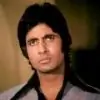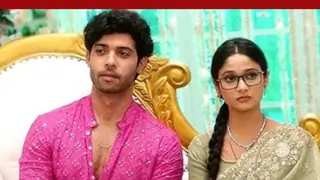Author: By V.N.Gupta
Four years ago on 4 January 1994, we lost a celebrated music director Rahul Dev Burman alias Pancham whose lilting compositions had captivated music lovers for three decades and who in his lifetime had become a living legend like his father Sachin Dev Burman. Born on 27 June 1939, RD was an only child of his parents. He began by learning the basics of music from his dad but was later trained in classical music by the maestro Ustad Ali Akbar Khan. At the age of 18, he joined his father as an assistant who was then an established music director in films. Pancham often took the opportunity to play the mouth organ in his father's orchestra. And it wasn't just the mouth organ that he could play but almost all the other musical instruments as well. RD marked his debut as an independent music director with the 1961 classic film Chhote Nawab. And made an impact with the classical and semi-classical numbers in the film. However, it was Teesri Manzil released in 1966 which proved to be a milestone. O mere Sona re Sona from the film is still very popular. There have been very few who have equalled RD's versatility in musical composition. RD created his very own style with a rare blend of western and Indian classical music, which later came to be known as the Pancham style. While on the one hand, Pancham catered to the popular taste in films like Hare Rama Hare Krishna, Jawani Diwani, Yaadon Ki Baraat, Kasme Wade, Sanam Teri Kasam and Caravan he also produced soul stirring music in films like Kudrat, Amar Prem, Aandhi and Ijaazat. RD's orchestration and rhythm continuity were perfect. Few have forgotten the orchestration of Mere samne wali in the extremely funny classic Padosan and Musafir hoon in Parichay.As regards rhythm continuity, all we need do is to hark back to O majhi re from Khushboo and Ek ladki ko from 1942 - A Love Story, (Pancham's last film for which he was posthumously awarded the Filmfare Award). Pancham was the first to make effective use of innovations in music technology including introducing stereophonic sound to enrich his music. But it was left to the lyricist-director Gulzar to coax the best out of Pancham. Indeed, there will be no exaggeration to say that Gulzar pulled Pancham's career out of and beyond Teesri Manzil. The Gulzar-Pancham combination started with the film Parichay. Featuring great artists like Jaya Bhaduri and Sanjeev Kumar, the film also brought to notice, the presence of Master Raju who was all of two-and-a-half years then. But it was essentially songs like, Beeti na beetayi raina that made the film a memorable one. It fetched a National Award for Lata Mangeshkar. Pancham himself won the National Award for another of Gulzar's film, Ijaazat, the songs for which had been sung by the inimitable Asha Bhonsle. The film's numbers like Mera kuch samaan.., tanha, tanha baheti hai.. even today capture the mood of the moment. Pancham also received the Filmfare Awards for the Best Music Director in 1983 and 1984 for the films Sanam Teri Kasam and Masoom respectively. He also received Lata Mangeshkar Samman in 1991. Pancham himself was an excellent singer. His song Mehbooba Mehbooba of Sholay became very popular. Today Pancham may not be among us, but he will always be missed by all who enjoyed his music.
Edited by Qwest - 19 years ago




















